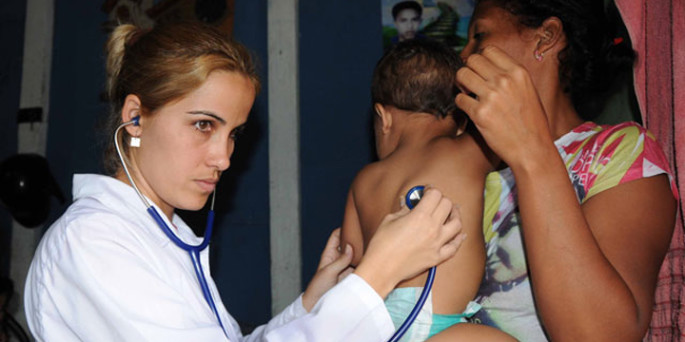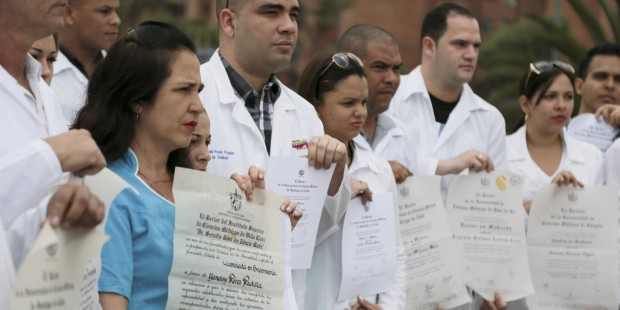
Doctors who defected can return to Cuba, health ministry says
Cuban doctors and other health workers who defected while abroad on state-sponsored missions can return to the homeland and resume their careers without fear of retribution, the Cuban Health Ministry announced Friday (Sept. 4).
At the end of a long article in the daily Granma on the benefits of socialized medicine, the Ministry states:
“Health professionals who, under the terms of the updating of our emigration policy, have left the country either for economic, family or professional interests, including those who fell victim to the deceitful practices of the vulgar ‘brain theft,’ have the opportunity, if they so wish, to reincorporate themselves into our National Health System, which will guarantee their reinstatement under conditions similar to those that they enjoyed.”
To explain its decision, the Ministry recalls that “more than 50,000 collaborators, half of whom are doctors, are serving missions in 68 countries. During all these years, more than 325,000 health workers have fulfilled 580,000 internationalist missions.”
This outreach “has not been exempt from defamatory campaigns to discredit the work of our doctors, and many have been the unethical actions performed by guilds and medical schools [abroad], which see in the Cuban professionals a threat to the lucrative business of capitalist medicine. […]
“One of the main artificers of the theft of talent has been the government of the United States, which, since [the start] of the Revolution, forced us to adopt migratory controls and regulations to counteract this situation and has persisted on its destabilizing intent through raffles, selective emigration and the Cuban Adjustment Act.
“In addition, it maintains the Cuban Medical Professional Parole Program, designed to incite the defection of Cuban medicine professionals during their missions in third countries. […] To do this, it has agents and activists in those places where our medics work through official agreements.”
These agents “pressure and offer facilities of every kind to anyone who defects and emigrates to U.S. territory with the promise of a better professional future, which, in reality, can be achieved only by a scant minority.
“This program has been questioned by several U.S. media, among them The New York Times, which described it as ‘a tool for the drain of Cuban brains, courtesy of the United States.'”

“We mustn’t forget that, in the first five years of the Revolution, nearly half of the doctors in Cuba emigrated,” leaving barely 3,600 on the island, the article says.
Last fiscal year alone, the CMPP program enabled 1,278 Cuban doctors to defect, The Times revealed last November.
Cuba is trying as best it can to “improve the living and working conditions of our medics,” the Ministry asserts.
“We’re efforting to increase [the doctors’] access to information technologies that will give them access to the most up-to-date of the various specialties; to get them scholarships abroad so they can learn new techniques; to expand the modality of the short-term missions (or itinerant groups); to promote their participation in congresses and national and international events for the purpose of disseminating their scientific works and exchanging experiences with their counterparts; and to take the steps necessary to achieve their betterment.”
The continuation of internationalist missions will not hinder the health care provided to Cubans on the island, the article sums up.
“The Cuban health system’s greatest strength is the human capital formed throughout all these years, which allows it to guarantee the health of our people while simultaneously going ahead with its international collaboration,” it says.


